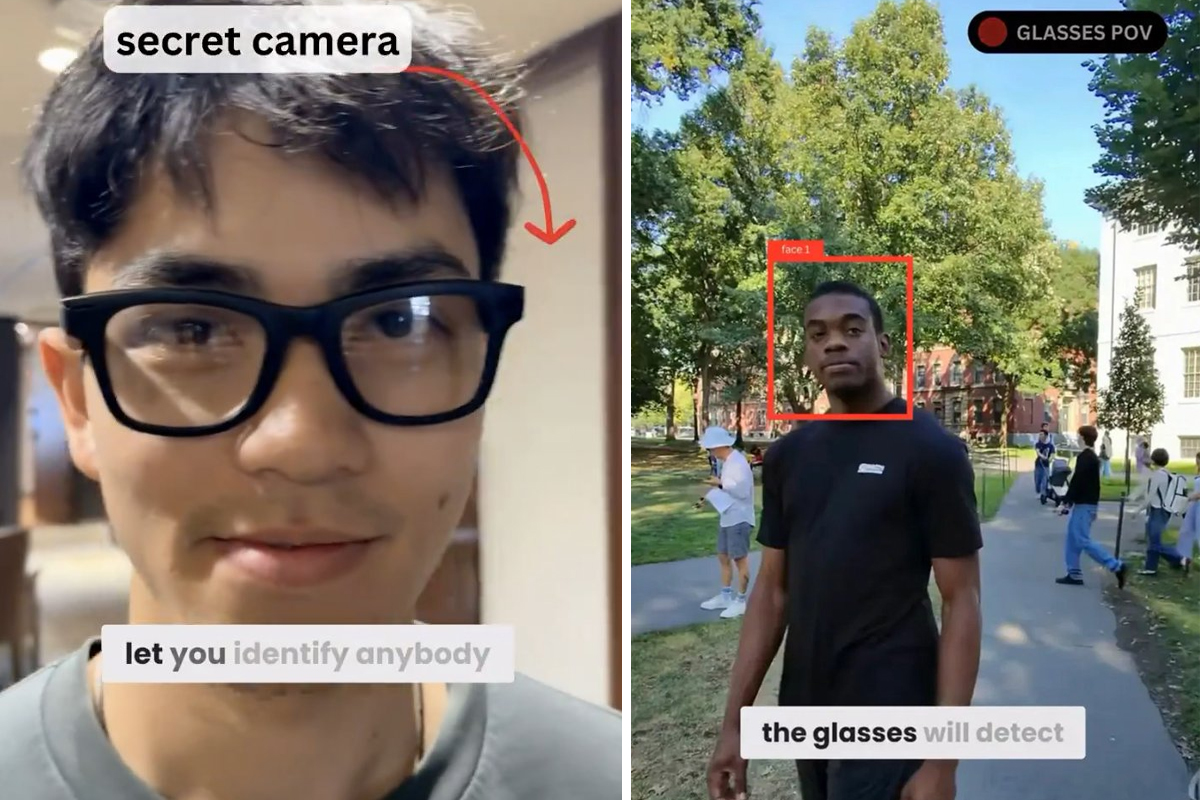Harvard students used Ray-Ban Meta smart glasses to demonstrate how easily facial recognition technology can reveal personal details like names and addresses, raising serious privacy concerns.
As someone who gets greeted alarmingly often by people whose names I ought to remember but don’t (I’m a minor community leader but am bad with names), I’ve wanted a device like this for 20+ years. I’m a little sad about the concept being vilified.
On the other hand, as an advocate for both privacy and Free Software, I always imagined it as being completely self-hosted and only adding people’s names/faces to its database when I’m introduced to them in person. I’m not at all sad about the particular implementation being vilified.
This reminds me of Watchdogs the game. Thought this was scary and cool at the same time.
People have survived without tools like this for thousands upon thousands of years. I think we can afford to wait a few more until there’s a privacy-respecting method behind it. I know we won’t, but I’m sure we could have.
As someone who is bad sat names but has a more social ex, same here. There are so many people I come across that ought to know. I probably come across as rude or aloof because I’m bad at faces and names
Oh look. Glassholes 2.0
They used PimEyes, nothing new.
Of importance: they do not want to release the tool but use it as a way to raise awareness.
You have allowed FreakBook to collect all your private data and photos of your face and body parts for so many years.
Now you are having questions when somebody actually uses them?
This article focuses to much on the glasses/face recognition tech while the actual problem is the database with of personal information and its public accessibility.
I haven’t used or uploaded any photos of myself to Facebook in probably about 10 years. So I would be interested to know what it can find on me as I highly suspect I don’t look the same as I did 10 years ago
Probably all the photos of you that other people have posted.
Identifying you could be possible all the same.
Can you tag people if they don’t have accounts?
Well, I cannot, because I don’t have an account there. I guess others can, but I don’t know for sure.
They have other ways. Cross site tracking etc. People without accounts on the platform itself still have profiles on the business side, which is a decent chunk of how they’re making money.
Right but without tagging they can’t do facial recognition can they.
What I’m saying is that if there’s a photograph of me on Facebook and someone tags it and goes ah there’s Bob Smith, does that that it’s me or is that just a label that says Bob Smith?
I wonder how much use is there in photos of you where you haven’t been tagged (in addition to being bad quality). When it comes to better-quality, tagged ones - you can just ask people not to do so.
PimEyes does not use photos from Facebook or other social media.
This has nothing to do with Facebook or Rayban. This can be done with a webcam and a laptop from 2006.
The entire problem here is PimEyes and the fact that it’s legal to collect and build a biometrics database in the first place.
I thought the comment was about “giving PimEyes training data via interacting with Facebook”.
PimEyes doesn’t use images or data from Facebook or other social media.
It’s a click bait article that’s been regurgitating through the less informed part of the tech news world because it has Meta in its title and it sounds scary.
Actually good articles covering it would point out that the flaw is entirely a legislative one, where America and a large chunk of the world simply have zero privacy rights or protections.
Dumb, click bait article.
This is about PimEyes, and databases that hoard facial recognition data, not Meta or Rayban or smart glasses.
In my opinion, it’s about both the databases and the hardware. Specifically if/when always-on cameras become socially acceptable to wear in public, then facial databases can be utilised.
Presently, I don’t think it’s socially acceptable to always be pointing a phone’s camera at someone.
Everyone having a FaceTime call does this. Every dash cam does this. Every Ring doorbell and self driving car does this. You can do this with a $10 usb pinhole webcam and an android phone or raspberry Pi.
The problem here is with facial recognition databases, not with people using cameras in public.




